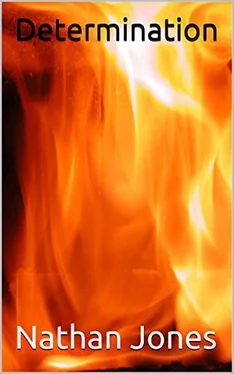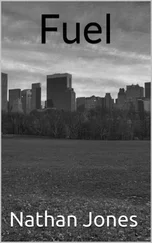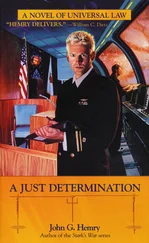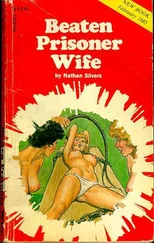Although he grieved the fallen, Lewis was at least relieved to see that Trev’s squad had found time to move their supplies up over the ridge like he’d asked. He was especially glad for it when he looked down the burning, blackened, ash-choked slope and saw the enemy force gathered below. That looked like a determined bunch of soldiers who obviously weren’t going to let the fires stop them, and two and a half squads of volunteers had very little hope of turning them back either. It was almost certain they were going to have to give up these emplacements.
Jane ran over to hug him when he arrived, followed moments later by Trev. “Good thinking getting the fire into the canyon,” Lewis told his cousin as he hugged him back.
Trev grimaced. “It was enough, barely. And it didn’t burn any of our guys, so that’s a plus. But my squad’s completely out of grenades and any other toys. We’ve just got our guns, and we’re running low on ammo.”
“My squad’s down to our guns, too,” Jane said. “And if the fighting in the canyon was as bad as it sounded I’m guessing it’s the same for you, right Lewis?”
Lewis smiled crookedly. “Yeah, within the first hour. Good thing we’ve got plenty of rocks to throw.” He glanced a hundred yards up the slope to the ridgeline above, where he could just barely see the top of a modestly tall pile of rocks running all the way along the stretch they had to defend. A ridge that petered down to half a mile at the top of the ever-narrowing mountainside, but was still almost too much distance to manage. That rock pile was their last line of defense once they lost these final emplacements.
Neither of the others smiled back at his weak attempt at humor. “Here they come,” Rick called as he stared over the sandbag fortifications.
So this was it. “All teams to their emplacements,” Lewis ordered as he hurried over to join his friend.
He needed to know how the enemy was attacking so he could plan their response. If the blockheads sent just a few squads ahead to try to clear the ridge, his fighters should be able to wipe them out without too much threat to the emplacements.
The enemy had to know that. There was no good way to fight up this slope aside from to come in one massive group, scattered as much as possible in case of grenades or other explosives. But they also had to be close enough together that when the hail of gunfire finally poured down at them, they were in a position to charge up the slope as fast as they could manage and try to storm the emplacements by sheer numbers.
It would be costly for them, but they had the soldiers to do it. And if they had grenades of their own they’d be able to soften up the fortifications before they got too close, improving their odds even more. Lewis still had nightmares about the rocket-propelled grenade that had killed Carl, and it wasn’t out of the realm of possibility that a force this large had some of those.
At least the wildfire would force the blockheads to bunch up. But unfortunately by the time they got within range of the emplacement they’d be mostly past the fires and could spread out again, since the firebreak provided a good gap for them. Lewis hoped that wouldn’t impact his plans too much.
As he’d predicted the blockheads came in one single mass, swirling around the fires then rejoining as they spread across the slope. They climbed with the relentless determination of disciplined professionals, even when scorched by the piles of ash they waded through up to their ankles, or reduced to coughing fits by the dense smoke and swirls of sparks.
Within the first hundred feet the enemy soldiers were covered head to toe in white streaked in black. The ash and soot on the ground was kicked up into clouds around them, obscuring the lower hillside, but he knew the enemy was there marching on, faces covered by bandannas or their undershirts pulled up to filter the choking mess.
“Hit them hard as soon as they’re in range,” he said quietly into his mic. The blockheads would charge as soon as they realized they were under attack, and running into a withering hail of gunfire would decimate their forces. But eventually his fighters would need to reload, or they’d run out of ammo, and by then the enemy would’ve reached the emplacements.
Maybe, he could hope, the blockheads would break and run before then.
Everyone fell into tense silence as the enemy got closer, step by step. At some spots they broke into a run to get past patches of intensely hot ground created by the flames, or to circle particularly large patches of the wildfire. But for the most part they conserved their energy, preparing for the final sprint at the top.
Lewis waited until they were four hundred yards away. That was a long shot, but in some places they were bunched up enough that even a miss wasn’t necessarily a miss. And the sooner his volunteers started thinning the enemy ranks, and more importantly the sooner they goaded the blockheads into their charge, the longer the enemy would have to run into gunfire and the better his people’s chances.
He targeted a clump of blockheads circling around a stand of trees that still burned hot, and after several seconds of careful aiming opened fire. He heard the reports of gunfire all around him as his friends opened fire, and below blockheads began to drop.
Too few, and too slowly. The enemy broke into a trot, weaving their way up the slope. More dropped, the enemy casualties getting higher and higher the closer they got, but still not enough. Then, at some command Lewis didn’t hear, they broke into a sprint all at once.
“Give it everything you’ve got!” Lewis shouted. He’d reloaded while they were still a good distance away, so he had plenty of rounds left to unload on the enemy. Around him the steady cracks of gunfire became a staccato roar, as thirty men and women emptied their magazines on the hundreds of soldiers coming at them.
He estimated over sixty enemy soldiers died within the next ten seconds, before their magazines all ran out at near the same time and they had to reload. Some blockheads were shooting back on the run, but most had dropped their heads and were simply sprinting all out into the hail of death hoping to get through.
When the enemy was two hundred yards away Lewis dropped down and grabbed his pack. “Retreat!” he screamed at the top of his lungs. He thumbed his mic and repeated the order in a more moderate tone. Then he turned and began sprinting up the slope himself.
In most situations, giving up their defenses with barely a fight would be a huge tactical mistake. Lewis just hoped it wasn’t in this case as he pushed for more speed.
They’d built the sandbag fortifications in the emplacements taller than usual. The specific intent for that was so they’d be high enough to block the line of sight of the volunteers’ flight up the slope from the enemy below. Which meant that whatever time it took for those blockheads to run the remaining distance and scale the emplacements, that was the time he and his friends had to get one hundred yards up to the line of piled rocks atop the ridge.
His team was close on his heels, the rest of his squad coming from their respective emplacements and Trev’s and Jane’s from theirs. It was a mad scramble up the slope, ducking and dodging where they could just in case the sandbags didn’t do the job.
Lewis had prepared paths directly above the emplacements, giving them narrow ways to get through the piles of rocks, so his people wouldn’t have to clamber over the piles and expose themselves to enemy fire. He reached the path above his emplacement and bolted down the narrow corridor with rocks rising to either side, doing his best not to trip over the loose stones underfoot.
Once he was past the rock pile he sprinted across the relatively flat space beyond, all his volunteers following close behind. Not a single one of them had paused to look behind them, which he was relieved to see.
Читать дальше












